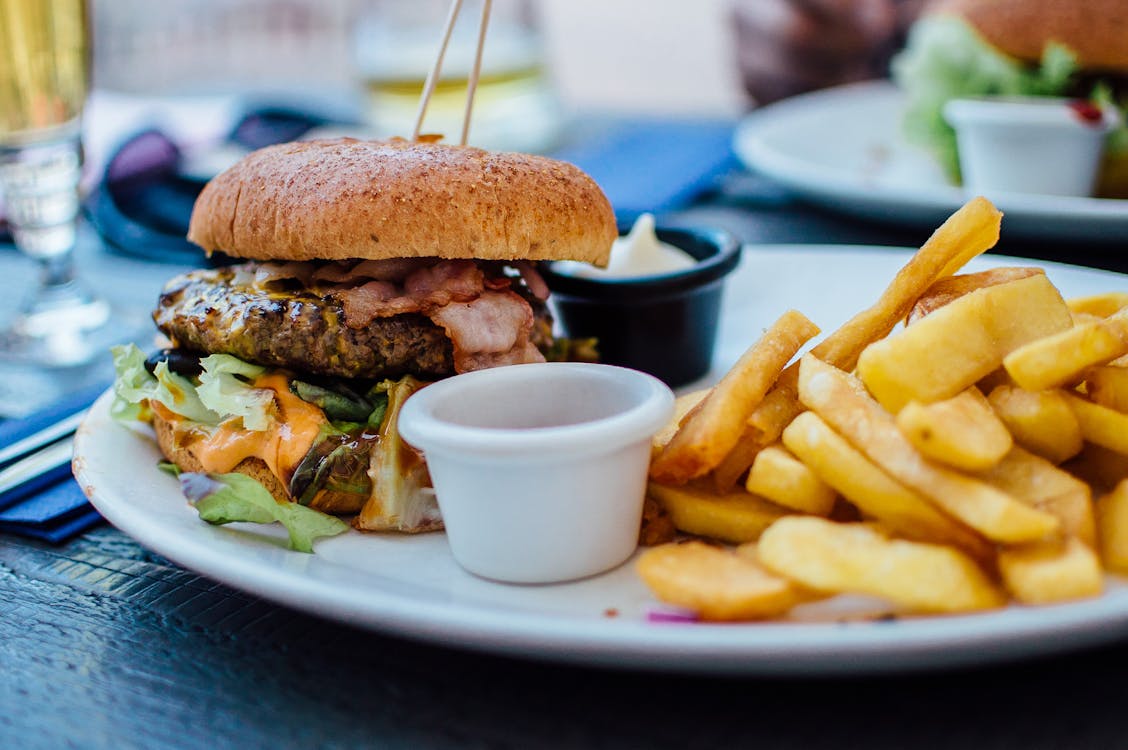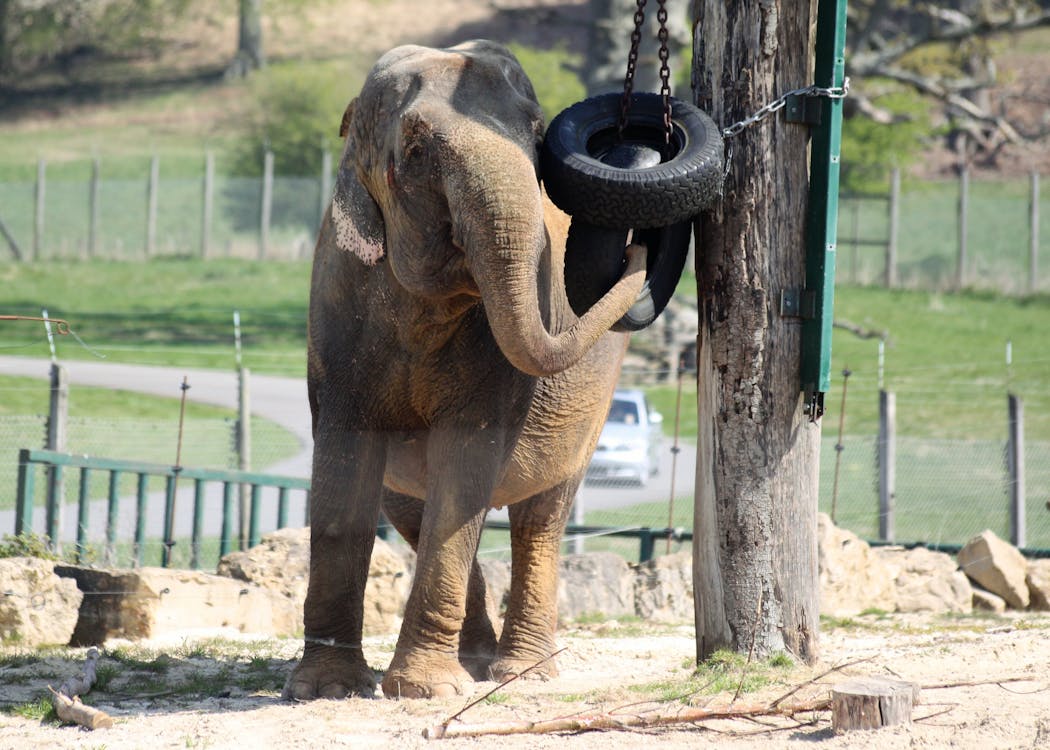Can Food Trucks Sell Alcohol? Navigating the complexities of mobile alcohol vending can be tricky, but FOODS.EDU.VN is here to provide clarity and ensure you’re well-informed about beverage catering, liquor licensing, and the exciting possibilities within the food truck industry. Let’s explore the ways food trucks can legally incorporate alcoholic beverages into their offerings, enhance their appeal, and delight their customers.
1. Understanding the Legal Landscape for Food Trucks Selling Alcohol
The ability for food trucks to sell alcohol is heavily regulated and varies significantly by location. Many jurisdictions have strict laws about where and how alcohol can be sold, and these laws often don’t easily accommodate the mobile nature of food trucks. Before even considering serving alcohol, it’s crucial to thoroughly research the specific regulations in your city, county, and state. Contacting your local Alcoholic Beverage Control (ABC) board or a qualified attorney specializing in alcohol licensing is highly recommended. They can provide precise information about what’s allowed, the permits you’ll need, and the potential pitfalls to avoid. This initial step is paramount to avoid costly fines or legal troubles down the road.
1.1 Key Considerations Before Pursuing Alcohol Sales
- Zoning Laws: Are there specific zones where alcohol sales are prohibited, even temporarily?
- Proximity Restrictions: Are there restrictions on selling alcohol near schools, churches, or other sensitive locations?
- Hours of Operation: What are the permissible hours for alcohol sales in your area?
- Types of Alcohol Allowed: Can you sell beer, wine, and spirits, or are there limitations?
- Licensing Requirements: What specific licenses and permits are needed at the local, county, and state levels?
- Insurance Coverage: Do you have adequate liability insurance, including dram shop insurance, to protect against potential alcohol-related incidents?
- Employee Training: Are your employees properly trained in responsible alcohol service, including checking IDs and recognizing signs of intoxication?
1.2 Resources for Navigating Alcohol Regulations
| Resource | Description |
|---|---|
| Local ABC Board | Provides information on local alcohol laws, licensing requirements, and compliance procedures. |
| State ABC Agency | Oversees alcohol regulation at the state level, offering guidance on statewide laws and permit applications. |
| Small Business Administration (SBA) | Offers resources and counseling for small businesses, including information on legal and regulatory compliance. |
| National Restaurant Association (NRA) | Provides educational materials and training programs on responsible alcohol service. |
| Legal Counsel Specializing in Alcohol Law | Offers expert legal advice and representation in navigating the complexities of alcohol licensing and compliance. |









2. Types of Alcohol Permits and Licenses for Mobile Food Vendors
Depending on your location and the nature of your business, you may need one or more types of alcohol permits or licenses to legally sell alcohol from your food truck. Here’s an overview of some common types:
- Temporary Alcohol Permit: Allows you to sell alcohol at a specific event for a limited time. Often required for festivals, fairs, and other special occasions.
- Catering Permit: Enables you to serve alcohol at catered events, such as weddings, corporate parties, and private gatherings.
- Mobile Vendor Alcohol License: Specifically designed for mobile food vendors, this license allows you to sell alcohol from your truck at approved locations.
- Brewpub License: If you brew your own beer, you may need a brewpub license to sell it from your food truck.
- Restaurant License: In some cases, a standard restaurant license may cover alcohol sales from a food truck, provided you meet certain requirements.
2.1 Obtaining the Right Permits: A Step-by-Step Approach
- Research Local Regulations: Begin by contacting your local ABC board and city/county government to understand the specific requirements in your area.
- Determine Permit Needs: Based on your research, identify the types of permits or licenses you’ll need to legally sell alcohol from your food truck.
- Gather Required Documentation: Collect all necessary documents, such as business licenses, health permits, insurance certificates, and proof of employee training.
- Complete Application Forms: Fill out the application forms for each permit or license you’re seeking, providing accurate and complete information.
- Submit Applications and Fees: Submit your applications along with the required fees to the appropriate government agencies.
- Undergo Inspections: Be prepared for inspections by the ABC board, health department, and fire department to ensure compliance with all regulations.
- Receive Approval and Permits: Once you’ve met all requirements, you’ll receive your alcohol permits or licenses, allowing you to legally sell alcohol from your food truck.
2.2 Understanding Special Event Permits
Special event permits are essential for food trucks looking to serve alcohol at events open to the public. These permits are typically temporary and tied to a specific location and timeframe. Often, these permits require affiliation with a non-profit organization. Be prepared to provide detailed information about the event, including:
- Event Organizer Contact Information
- Date, Time, and Location of the Event
- Security Plan
- Alcohol Service Plan
- Proof of Insurance
- Non-profit’s 501(c)(3) Determination Letter
3. Best Practices for Serving Alcohol from a Food Truck Responsibly
Serving alcohol comes with significant responsibilities. It’s crucial to implement practices that promote responsible consumption and prevent alcohol-related incidents. Here are some best practices to follow:
- Check IDs: Card everyone who appears to be under the legal drinking age. Use a reliable ID scanner to verify authenticity.
- Monitor Consumption: Train your staff to recognize signs of intoxication and to refuse service to visibly intoxicated patrons.
- Offer Food and Non-Alcoholic Beverages: Encourage responsible drinking by offering a variety of food options and non-alcoholic beverages.
- Promote Designated Drivers: Encourage patrons to designate a driver who will abstain from alcohol.
- Provide Safe Transportation Options: Partner with local taxi or ride-sharing services to provide safe transportation options for patrons who have been drinking.
- Implement a “Last Call” Policy: Announce a “last call” for alcohol service well before closing time to allow patrons to sober up before leaving.
3.1 Implementing Effective ID Verification
| Feature | Description |
|---|---|
| ID Scanner | Electronically verifies the authenticity of IDs and can detect fake or expired documents. |
| Trained Staff | Employees trained to identify fake IDs and recognize signs of intoxication. |
| Second Form of ID | Require a second form of identification if the primary ID is questionable. |
| Age Verification Apps | Mobile apps that scan IDs and verify age. |
| Clear Signage | Post signs stating that ID is required and that underage drinking is strictly prohibited. |
3.2 Dram Shop Laws and Liability
Dram shop laws hold establishments liable for damages caused by intoxicated patrons they served. This means that if a food truck serves alcohol to someone who is visibly intoxicated and that person then causes an accident, the food truck could be held responsible for the resulting injuries and damages. To protect yourself, it’s essential to:
- Obtain dram shop insurance.
- Train your staff in responsible alcohol service.
- Strictly enforce policies against serving intoxicated patrons.
- Document all alcohol sales and incidents.
4. Creating a Profitable Alcohol Menu for Your Food Truck
Offering alcohol can significantly boost your food truck’s revenue, but it’s essential to create a menu that appeals to your target audience and complements your food offerings. Here are some tips for creating a profitable alcohol menu:
- Consider Your Brand: Your alcohol menu should reflect your food truck’s overall brand and style.
- Offer Variety: Provide a variety of options to appeal to different tastes, including beer, wine, cocktails, and non-alcoholic beverages.
- Pairings: Suggest specific alcohol pairings that complement your food dishes.
- Seasonal Offerings: Introduce seasonal drinks to keep your menu fresh and exciting.
- Local Focus: Feature local craft beers and wines to support local businesses and appeal to customers who value local products.
- Pricing: Price your alcohol menu items competitively to attract customers while maintaining profitability.
4.1 Menu Ideas to Boost Alcohol Sales
| Menu Item | Description | Pairing Suggestion |
|---|---|---|
| Craft Beer Flight | A selection of small pours of different local craft beers. | Spicy tacos or BBQ sliders |
| Signature Cocktail | A unique and creative cocktail that reflects your food truck’s brand. | Gourmet burgers or artisanal pizzas |
| Wine by the Glass | A selection of red, white, and rosé wines. | Cheese boards or charcuterie plates |
| Non-Alcoholic Mocktail | A refreshing and flavorful non-alcoholic cocktail. | Any dish on your menu |
| Hard Cider | A crisp and refreshing alcoholic beverage made from apples. | Pork dishes or apple-themed desserts |
4.2 Strategic Alcohol Pricing
Pricing your alcohol menu appropriately is critical for profitability. Consider these factors:
- Cost of Goods Sold (COGS): Calculate the cost of each ingredient and packaging.
- Labor Costs: Factor in the time it takes to prepare and serve each drink.
- Overhead Costs: Include expenses like rent, utilities, and insurance.
- Competitor Pricing: Research the prices of similar drinks at nearby establishments.
- Perceived Value: Consider the perceived value of your drinks and adjust pricing accordingly.
5. Marketing Your Food Truck’s Alcohol Offerings
Once you’ve obtained the necessary permits and created a compelling alcohol menu, it’s time to market your offerings to attract customers. Here are some effective marketing strategies:
- Social Media: Use social media platforms to promote your alcohol menu, special events, and happy hour deals.
- Website: Create a website or online menu that showcases your alcohol offerings and provides information about your food truck.
- Local Partnerships: Partner with local businesses, such as breweries and wineries, to cross-promote your businesses.
- Event Sponsorships: Sponsor local events and offer your alcohol services to attendees.
- Public Relations: Reach out to local media outlets to generate publicity for your food truck’s alcohol offerings.
- Signage: Use eye-catching signage to advertise your alcohol menu and specials.
5.1 Leveraging Social Media for Alcohol Promotion
| Platform | Strategy |
|---|---|
| Post visually appealing photos and videos of your drinks, use relevant hashtags, and run contests. | |
| Share information about your alcohol menu, special events, and happy hour deals, and engage with followers. | |
| Tweet about your alcohol offerings, respond to customer inquiries, and participate in relevant conversations. | |
| TikTok | Create short, engaging videos showcasing your drinks and the atmosphere of your food truck. |
5.2 Creating Eye-Catching Signage
Your signage is often the first impression customers have of your food truck. Make sure it’s clear, concise, and visually appealing. Consider these tips:
- Use high-quality materials.
- Choose a font that is easy to read.
- Use bright colors to attract attention.
- Highlight your most popular alcohol offerings.
- Include pricing information.
- Update your signage regularly to reflect seasonal offerings and specials.
6. Insurance Needs for Food Trucks Selling Alcohol
As mentioned earlier, selling alcohol significantly increases your liability exposure. In addition to general liability insurance, you’ll need specific coverage to protect your business from alcohol-related claims. Here are some essential types of insurance:
- Dram Shop Insurance: Covers damages caused by intoxicated patrons you served.
- Liquor Liability Insurance: Protects you from claims arising from the sale or service of alcohol, such as serving minors or contributing to intoxication.
- General Liability Insurance: Covers bodily injury and property damage claims.
- Workers’ Compensation Insurance: Covers medical expenses and lost wages for employees injured on the job.
6.1 Evaluating Your Insurance Needs
| Coverage Type | Description | Why It’s Important |
|---|---|---|
| Dram Shop Insurance | Covers liability for damages caused by intoxicated patrons. | Protects your business from costly lawsuits and financial losses. |
| Liquor Liability Insurance | Covers claims related to the sale or service of alcohol. | Protects you from claims arising from serving minors or contributing to intoxication. |
| General Liability Insurance | Covers bodily injury and property damage claims. | Protects you from a wide range of potential liabilities. |
| Workers’ Compensation | Covers medical expenses and lost wages for employees injured on the job. | Provides financial protection for your employees and protects your business from lawsuits. |
6.2 Working with an Insurance Broker
Navigating the complexities of insurance can be daunting. Working with an experienced insurance broker who specializes in the food and beverage industry can help you identify your specific needs and find the right coverage at a competitive price. A broker can:
- Assess your risks and liabilities.
- Shop around for the best insurance policies.
- Negotiate with insurance companies on your behalf.
- Provide ongoing support and guidance.
7. Maintaining Compliance with Alcohol Laws
Compliance with alcohol laws is an ongoing process. You must stay informed about changes in regulations and consistently enforce policies to prevent violations. Here are some tips for maintaining compliance:
- Stay Informed: Subscribe to industry publications and attend seminars to stay up-to-date on alcohol laws and regulations.
- Train Your Staff Regularly: Provide ongoing training to your staff on responsible alcohol service, ID verification, and compliance procedures.
- Conduct Internal Audits: Regularly review your policies and procedures to ensure compliance.
- Cooperate with Authorities: Cooperate fully with law enforcement and regulatory agencies during inspections and investigations.
- Maintain Accurate Records: Keep accurate records of all alcohol purchases, sales, and incidents.
7.1 Common Alcohol Law Violations
| Violation | Description | Consequences |
|---|---|---|
| Serving Underage Patrons | Selling or serving alcohol to individuals under the legal drinking age. | Fines, license suspension or revocation, criminal charges. |
| Serving Intoxicated Patrons | Selling or serving alcohol to individuals who are visibly intoxicated. | Dram shop liability, fines, license suspension or revocation. |
| Selling Alcohol Without a License | Selling alcohol without the required permits or licenses. | Fines, closure of business, criminal charges. |
| Violating Hours of Operation | Selling alcohol outside of the permitted hours. | Fines, license suspension or revocation. |
| Improper Record Keeping | Failing to maintain accurate records of alcohol purchases, sales, and incidents. | Fines, license suspension or revocation. |
7.2 Building a Culture of Compliance
Creating a culture of compliance starts with leadership. As the owner or manager of a food truck, you must demonstrate a commitment to following alcohol laws and regulations. This includes:
- Setting clear expectations for your staff.
- Providing ongoing training and support.
- Enforcing policies consistently.
- Rewarding employees who demonstrate a commitment to compliance.
- Addressing violations promptly and effectively.
8. Alternative Approaches to Selling Alcohol from a Food Truck
If obtaining a traditional alcohol license proves too difficult or costly, there are alternative approaches to consider:
- Partnering with a Licensed Establishment: Partner with a nearby restaurant or bar that already has an alcohol license and allow them to serve drinks to your customers.
- Operating at Events with Alcohol Sales: Participate in festivals, fairs, and other events where alcohol is already being sold by licensed vendors.
- Offering BYOB (Bring Your Own Beverage): In some jurisdictions, you may be able to allow customers to bring their own alcohol to your food truck. However, be sure to check local regulations carefully.
8.1 The Benefits of Partnerships
Partnering with a licensed establishment can be a win-win situation. You can offer alcohol to your customers without the hassle of obtaining your own license, and the licensed establishment can benefit from increased foot traffic and sales. When considering a partnership, look for an establishment that:
- Shares your target audience.
- Has a complementary menu.
- Is located in a convenient location.
- Is willing to work with you on pricing and promotions.
8.2 Navigating BYOB Regulations
If you choose to allow BYOB, be sure to check local regulations carefully. Some jurisdictions may prohibit BYOB altogether, while others may have specific requirements, such as:
- Customers must be of legal drinking age.
- Customers must not be visibly intoxicated.
- You cannot provide alcohol service, such as pouring or mixing drinks.
- You must post signs stating that BYOB is permitted.
9. Common Mistakes to Avoid When Selling Alcohol from a Food Truck
Selling alcohol can be a lucrative venture, but it’s essential to avoid common mistakes that can lead to legal trouble or financial losses. Here are some pitfalls to watch out for:
- Failing to Obtain Proper Permits: Operating without the required permits or licenses can result in hefty fines, closure of your business, and even criminal charges.
- Serving Underage Patrons: Serving alcohol to individuals under the legal drinking age is a serious offense that can lead to severe penalties.
- Serving Intoxicated Patrons: Serving alcohol to visibly intoxicated patrons can result in dram shop liability and other legal consequences.
- Neglecting Employee Training: Failing to train your employees on responsible alcohol service and compliance procedures can increase your risk of violations.
- Ignoring Local Regulations: Ignoring local alcohol laws and regulations can lead to fines, license suspension, or revocation.
- Inadequate Insurance Coverage: Not having adequate insurance coverage can leave you financially vulnerable in the event of an alcohol-related claim.
9.1 Due Diligence Checklist
| Area of Concern | Action Items |
|---|---|
| Licensing | Verify all required licenses are obtained and up-to-date. |
| Compliance | Regularly review and update compliance procedures. |
| Training | Conduct regular training sessions for all staff on responsible alcohol service. |
| Insurance | Ensure adequate insurance coverage, including dram shop and liquor liability. |
| Record Keeping | Maintain accurate records of alcohol purchases, sales, and incidents. |
9.2 Seeking Expert Advice
Navigating the complexities of alcohol laws and regulations can be challenging. Don’t hesitate to seek expert advice from attorneys, consultants, and insurance brokers specializing in the food and beverage industry. They can provide valuable guidance and help you avoid costly mistakes.
10. Frequently Asked Questions (FAQs) About Food Trucks and Alcohol Sales
- Is it legal for food trucks to sell alcohol? The legality of food trucks selling alcohol varies by location and depends on local and state regulations.
- What type of alcohol license do I need to sell alcohol from my food truck? The type of license you need depends on the type of alcohol you plan to sell (beer, wine, spirits) and the nature of your business (e.g., temporary event, catering, mobile vending).
- How do I apply for an alcohol license for my food truck? The application process varies by location, but typically involves submitting an application form, providing documentation, and undergoing inspections.
- What are the risks of selling alcohol from my food truck? The risks include liability for alcohol-related incidents, fines for violations, and potential suspension or revocation of your license.
- How can I minimize the risks of selling alcohol from my food truck? You can minimize the risks by obtaining adequate insurance coverage, training your staff in responsible alcohol service, and complying with all applicable laws and regulations.
- Can I sell alcohol at special events without a license? In some cases, you may be able to obtain a temporary alcohol permit for special events.
- What is dram shop liability? Dram shop liability refers to the legal responsibility of establishments that serve alcohol for damages caused by intoxicated patrons they served.
- Do I need dram shop insurance if I sell alcohol from my food truck? Yes, dram shop insurance is highly recommended to protect your business from potential liability.
- Can I allow customers to bring their own alcohol to my food truck? This depends on local regulations. Some jurisdictions may prohibit BYOB, while others may have specific requirements.
- Where can I find more information about alcohol laws and regulations in my area? Contact your local ABC board or a qualified attorney specializing in alcohol licensing.
For more in-depth knowledge and resources about navigating the culinary world, including detailed guides on food safety, innovative recipes, and expert advice on running a successful food business, visit FOODS.EDU.VN at 1946 Campus Dr, Hyde Park, NY 12538, United States, or reach out via WhatsApp at +1 845-452-9600.
FOODS.EDU.VN is your ultimate destination for culinary excellence. We understand the challenges you face in finding reliable recipes, mastering cooking techniques, and staying informed about the latest food trends. That’s why we’ve created a comprehensive platform to meet all your culinary needs.
Ready to take your culinary skills to the next level? Explore FOODS.EDU.VN today and unlock a world of culinary knowledge. Discover expert tips, innovative recipes, and in-depth guides to help you succeed in the kitchen and beyond. Don’t miss out on this opportunity to elevate your culinary journey. Visit foods.edu.vn now and start exploring!


